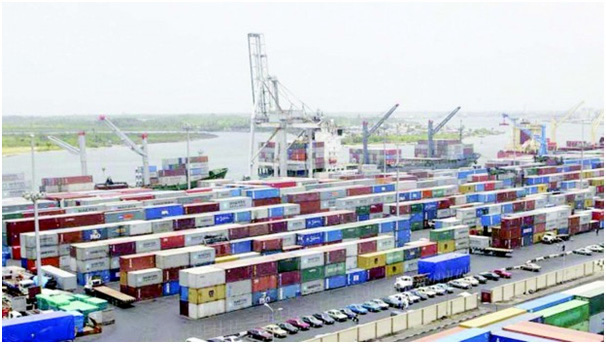The Nigerian Ports Authority (NPA) secured a $700 million loan from Citibank, backed by the UK Export Finance, to rehabilitate the Apapa and Tincan Island Ports in Lagos. These ports, crucial to Nigeria’s maritime trade, have long suffered from dilapidation and inefficiency, impacting the nation’s economy. The loan agreement, finalized under the previous NPA Managing Director, Mohammed Bello-Koko, aimed to address critical infrastructural deficiencies and modernize port operations. Despite initial announcements suggesting imminent commencement of the rehabilitation project, no visible work has begun, raising concerns among stakeholders. The delay has sparked questions about the project’s timeline and the utilization of the secured funds.
The NPA’s initial plan encompassed a broader scope of port rehabilitation, including upgrades to Eastern Ports like Calabar, Warri, Onne, and Rivers Ports, along with the reconstruction of the Escravos Breakwater. Bello-Koko, at the time of the loan agreement signing, highlighted the strategic approach of separating the Lagos ports’ rehabilitation from the Eastern ports’ to facilitate more efficient funding and implementation. He emphasized the importance of physical infrastructure alongside the ongoing automation efforts to improve port efficiency, increase revenue, and minimize leakages. The Citibank loan was chosen due to its favorable interest rates, presenting a cost-effective solution for the much-needed port overhaul.
Despite the change in leadership at the NPA, with Dr. Abubakar Dantsoho taking over as Managing Director, the commitment to port rehabilitation remained a top priority. Dantsoho stressed the significance of robust infrastructure and stakeholder collaboration to enhance revenue generation, efficiency, and productivity within the nation’s seaports. However, the transition in leadership appears to have coincided with a stagnation in the rehabilitation project, further fueling anxieties about the project’s future. The lack of visible progress on the ground contrasts sharply with the urgency expressed by both former and current NPA leadership.
The prolonged delay in implementing the rehabilitation project has drawn criticism from maritime stakeholders. The Research at Sea Empowerment Research Centre expressed serious concerns about the lack of action, emphasizing the negative impact on port operations, including congestion, low berth production, and extended ship turnaround times. The Centre called for immediate action, urging the government to establish a transparent project management system with clear milestones, progress updates, and open communication channels with stakeholders. They also advocated for prioritizing critical infrastructure repairs, such as quay walls, cranes, and handling equipment, to maximize the impact of the rehabilitation efforts.
Furthermore, the Research Centre highlighted the underlying systemic issues contributing to the ports’ current state. These include inadequate maintenance, insufficient investment in new technologies, inefficient port management, and bureaucratic inefficiencies, all exacerbated by corruption. They recommended investing in modern port management systems to enhance efficiency, reduce costs, and improve the overall port experience. The call for addressing these root causes underscores the need for a comprehensive approach to port rehabilitation, going beyond mere infrastructural improvements to encompass systemic reforms.
The Maritime Workers Union of Nigeria also voiced concerns, particularly regarding the safety of dockworkers operating within the dilapidated port environment. The union president, Adewale Adeyanju, questioned the whereabouts of the loan funds and the absence of contractors on-site. He highlighted the unsafe working conditions in many terminals, emphasizing the urgency of the rehabilitation project. Adeyanju’s remarks reflect the growing frustration among port workers who bear the brunt of the infrastructure deficiencies. The union’s concerns further underscore the need for transparency and accountability in the management of the rehabilitation project. The NPA’s response to these concerns is crucial to allay fears and restore confidence in the project’s implementation. The NPA, through its General Manager of Corporate and Strategic Communications, attributed the delay to the submission of additional documentation requested by the UK Export Finance, including environmental impact assessments and financial viability reports. While asserting that the loan is secured, the NPA now projects the commencement of rehabilitation work to the second quarter of 2025, a significant delay from the initial timeline. This revised schedule raises further questions about the project’s management and the potential for further delays.


